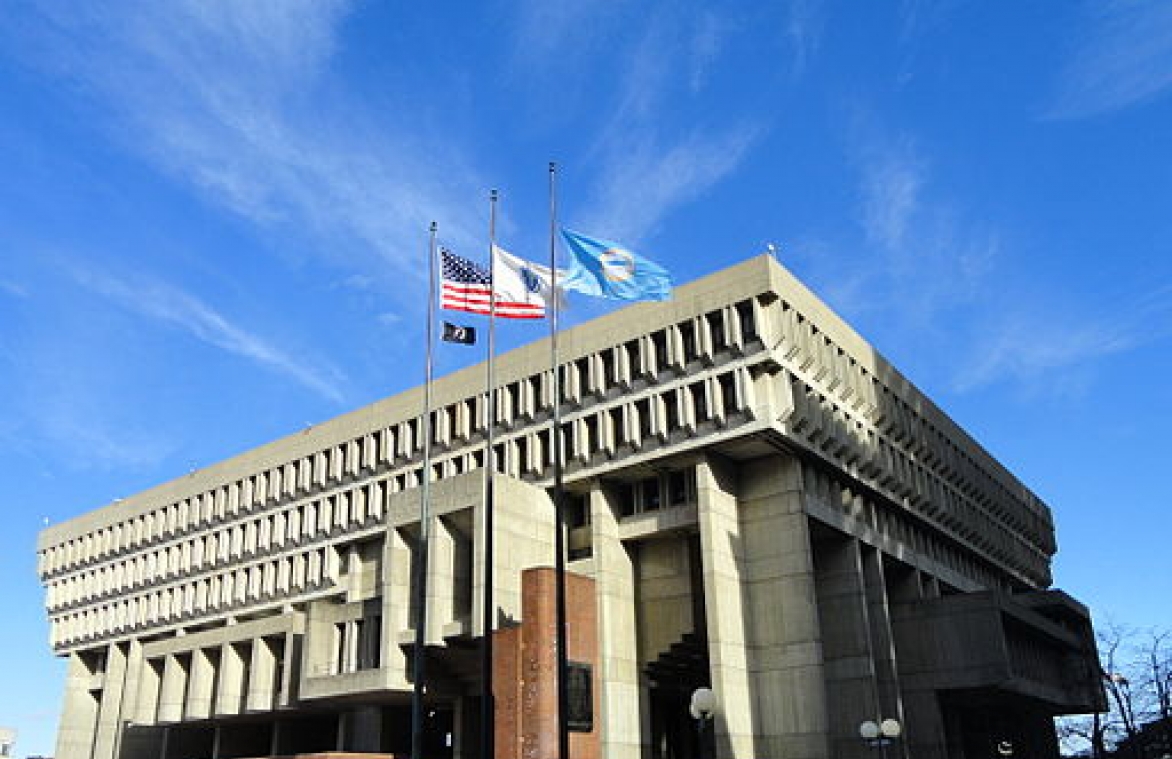The city of Boston did not violate the First Amendment by refusing to fly a Christian flag on a government-owned flagpole at City Hall, a federal appeals court has ruled. The appeals court reasoned that flags flown at city hall constitute a form of government speech insulated from First Amendment review.
Harold Shurtleff directs Camp Constitution, a volunteer association established in 2009 to increase appreciation of the country’s Judeo-Christian moral heritage and appreciation for the U.S. Constitution. In September 2017, Shurtleff sought a permit to fly a Christian flag on Constitution Day outside city hall in Boston.
Man says Boston’s refusal to fly Christian flag violated First Amendment
The city denied the permit but allowed Shurtleff and Camp Constitution to hold an event there. Nevertheless, Shurtleff sued, contending that the refusal to issue the permit to fly the Christian flag amounted to discrimination against religious expression in violation of the First Amendment.
After a federal district court refused to issue an injunction against the city, Shurtleff appealed to the 1st U.S. Circuit Court of Appeals. A three-judge panel of the 1st Circuit affirmed the district court in its June 27, 2019, decision in Shurtleff v. City of Boston.
The appeals court panel determined that the city engages in government speech when it flies flags on its poles outside city hall. Under the government speech doctrine, the government can engage in its own speech without discriminating on the basis of viewpoint.
1st Circuit upholds Boston’s right under government speech doctrine
The appeals court applied several factors that it gleaned from the U.S. Supreme Court decisions in Pleasant Grove v. Summum (2009) and Walker v. Sons of Confederate Veterans (2015), two government speech decisions. In Summum, the Court ruled that monuments in a public park were government speech. In Walker, the Court ruled that specialty license plates on vehicles also were a form of government speech.
The three factors from these cases used by the 1st Circuit panel were: “(1) whether the government has traditionally used the message or conduct at issue to the speak to the public; (2) whether persons would interpret the speech as conveying some message on the government’s behalf; and (3) whether the government maintains control over the selection of the message.”
The first factor – traditional government control – cut in favor of the city, as the panel explained that “the government has long used flags to communicate messages.” The appeals court noted that the city has flown its city flag on many occasions.
The second factor – whether observers would view the flags as government speech – also cut in favor of the city. “We have little doubt that the third-party flag’s message would be attributed to the city,” the panel wrote.
Finally, the appeals court also determined that the third factor – whether the government controls the selection of the message – also supported the city. “The record is clear that the City owns the flagpole at issue and that it controls which third-party flags are raised in place of the city flag,” the panel wrote.
The appeals court panel concluded: “A straightforward assessment under the Summum/Walker factors thus requires us to conclude that the City’s decision about which flags to display on the flagpole at issue is likely government speech.”
Shurtleff also argued that the government speech doctrine was not applicable because the city had created a designated public forum for private speech with the flagpoles. However, the panel determined that the city did not create a designated public forum but instead maintained control over which flags it chose to fly.
David L. Hudson, Jr. is a law professor at Belmont who publishes widely on First Amendment topics. He is the author of a 12-lecture audio course on the First Amendment entitled Freedom of Speech: Understanding the First Amendment (Now You Know Media, 2018). He also is the author of many First Amendment books, including The First Amendment: Freedom of Speech (Thomson Reuters, 2012) and Freedom of Speech: Documents Decoded (ABC-CLIO, 2017).

